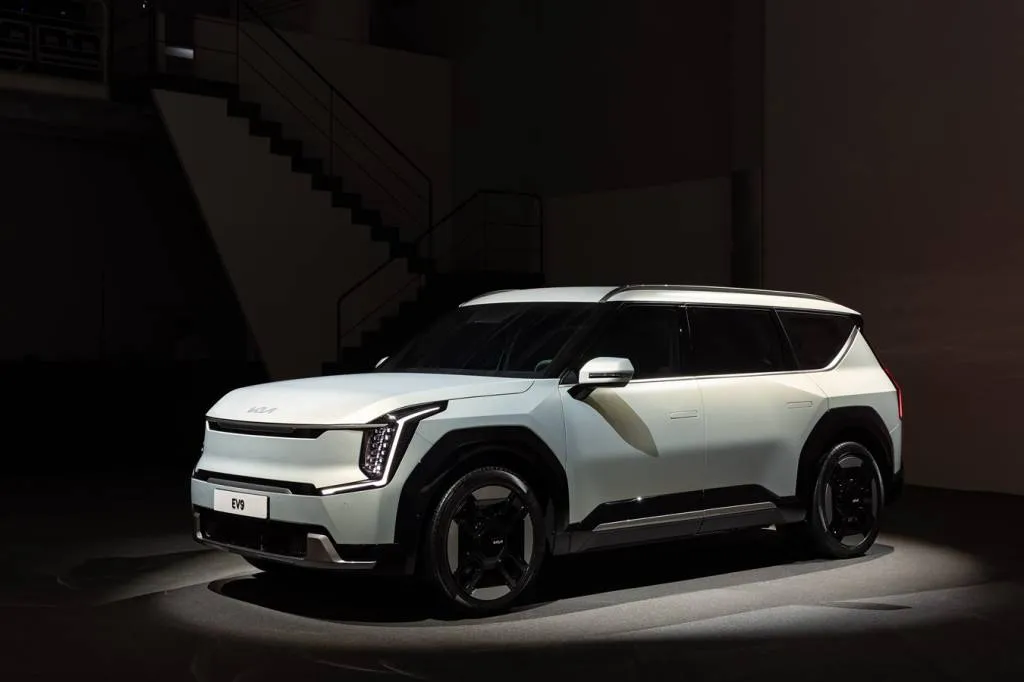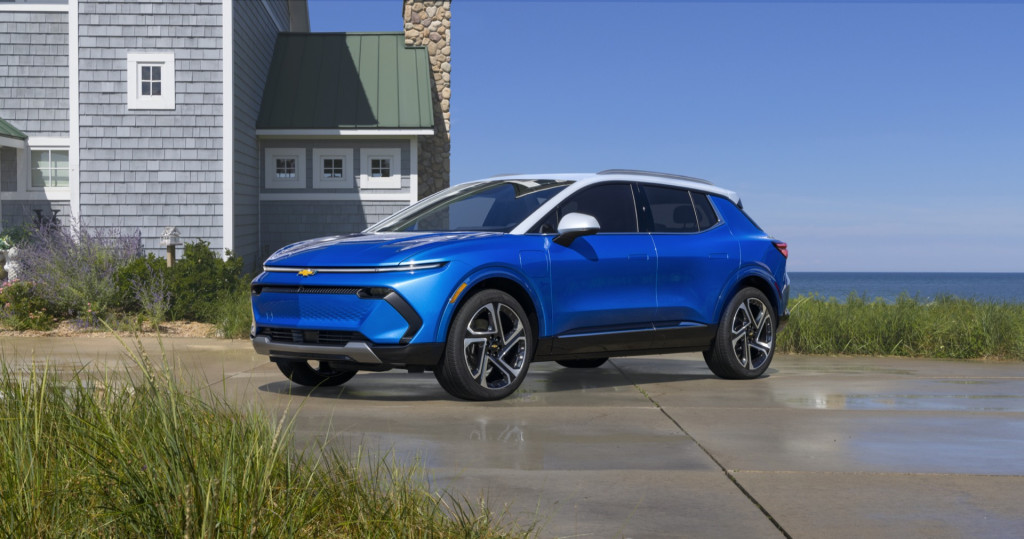Provisions of the Inflation Reduction Act (IRA) could more than double U.S. EV sales compared to previous projections, according to new analysis from S&P Global Mobility.
A pre-IRA forecast saw two million U.S. EV sale by 2030. Now, with IRA-influenced trends like greater automaker investment in EV manufacturing, as well as a revamped federal tax credit for which more EVs will soon qualify, S&P Global Mobility expects EV sales to surpass 4.6 million cars by the end of the decade.

2024 Kia EV9
Sales are already increasing. Analysts forecast over 1.3 million EV and plug-in hybrid sales in the U.S. in 2023, a year-on-year increase of over 52%. California is leading the way—it’s forecast at 30% of the 2023 sales total—and the 2035 EV mandate it originated that is now being adopted by other states supports the more optimistic 2030 sales forecast.
So do U.S. EPA emissions rules for new vehicles, which don’t mandate EVs but are anticipated to require 67% EV sales to meet. That projection also leaves President Biden’s target of 50% EVs by 2030 is looking far less ambitious than it seemed when announced in 2021.

2024 Chevrolet Equinox EV
While more EVs should help reduce carbon emissions in the long term, S&P Global Mobility is also forecasting some shorter-term growing pains. Analysts see demand for lithium in 2035 to be 15% higher due to the IRA’s EV-friendly provisions, but predict automakers won’t be able to shift sourcing of this critical battery raw material quickly enough to meet cosmetic-sourcing requirements set out in the IRA for the federal EV tax credit.
Electricity demand could increase too, analysts predict, leading to questions of whether U.S. infrastructure expansion can keep pace with rising EV sales. A federal study released earlier this year estimated that a national charging network will need 182,000 publicly-accessible DC fast-charging ports and one million Level 2 AC ports by 2030—plus eight million Level 1 and Level 2 AC connectors at residences and workplaces.

